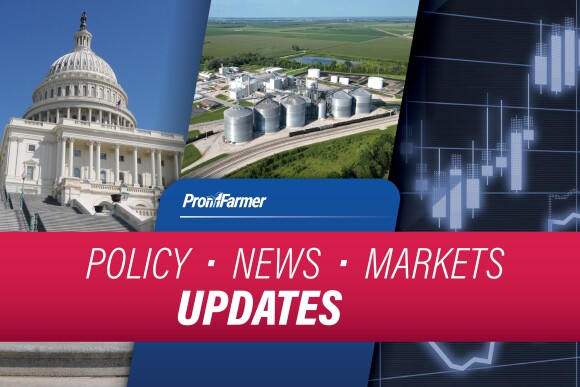Policy Update
President Trump has implemented a temporary 10% global tariff on imports in response to the recent Supreme Court ruling, but several agricultural goods are off the tariff list.
In one of its last major actions of 2025, the U.S. Senate approved a large slate of nearly 100 administration nominees, including several key figures for agricultural trade and USDA leadership.
Last week, the U.S. Department of Agriculture released analysis of public comments on its sweeping reorganization plan, revealing the vast majority of feedback to be negative.
Farmers and rural advocates say the expiration of enhanced Affordable Care Act (ACA) premium tax credits at the end of the year will lead to steep increases in 2026 health insurance costs.
Yesterday, the USDA announced a pilot program aimed at helping farmers adopt regenerative agriculture techniques, with the possibility of additional support from corporate partners.
President Trump unveiled a $12 billion farm aid package yesterday, as producers continue to absorb steep financial hits from ongoing trade disputes, rising costs, and weak commodity prices.
On the first day of a three-day hearing, U.S. farmers offered conflicting testimony on the impact of the United States–Mexico–Canada Agreement (USMCA).
Today, USDA promised a new short-term aid package to help carry farmers through a difficult 2025-2026 cycle until longer-term provisions under the One Big Beautiful Bill Act (OBBBA) take effect in late 2026.
The current wave of highly pathogenic avian influenza is no longer behaving like a traditional poultry-only disease. The virus has spread into dozens of species, allowing it to circulate year-round instead of fading after seasonal outbreaks.
In an analysis published yesterday, the American Farm Bureau Federation (AFBF) projects that margins for most of the major U.S. row crops will deteriorate further this marketing year, as producers face elevated input costs and weak export demand.
The United Farm Workers of America (UFW) has filed a lawsuit in the U.S. District Court for the Eastern District of California challenging the Labor Department’s recent interim final rule that revises how wage rates are set for the H‑2A visa program.




